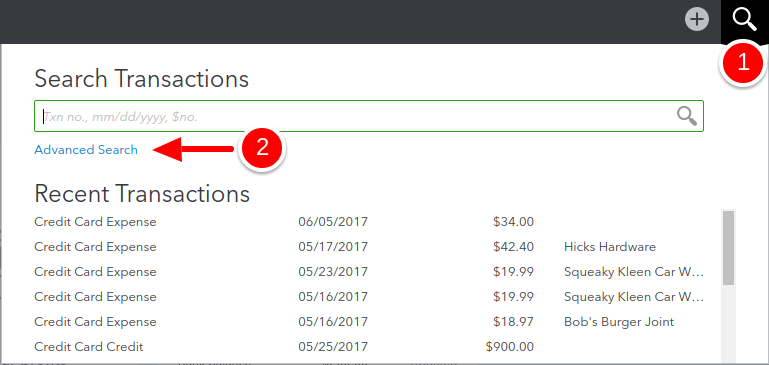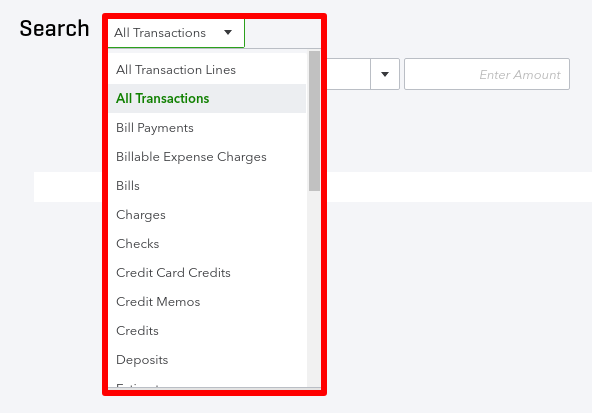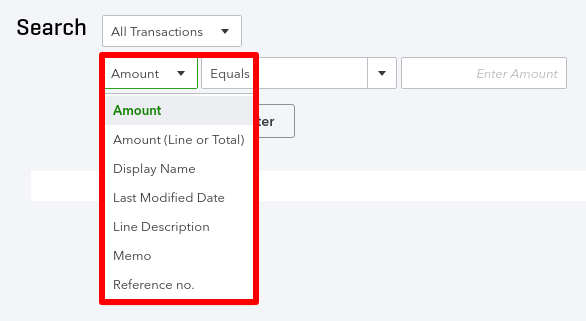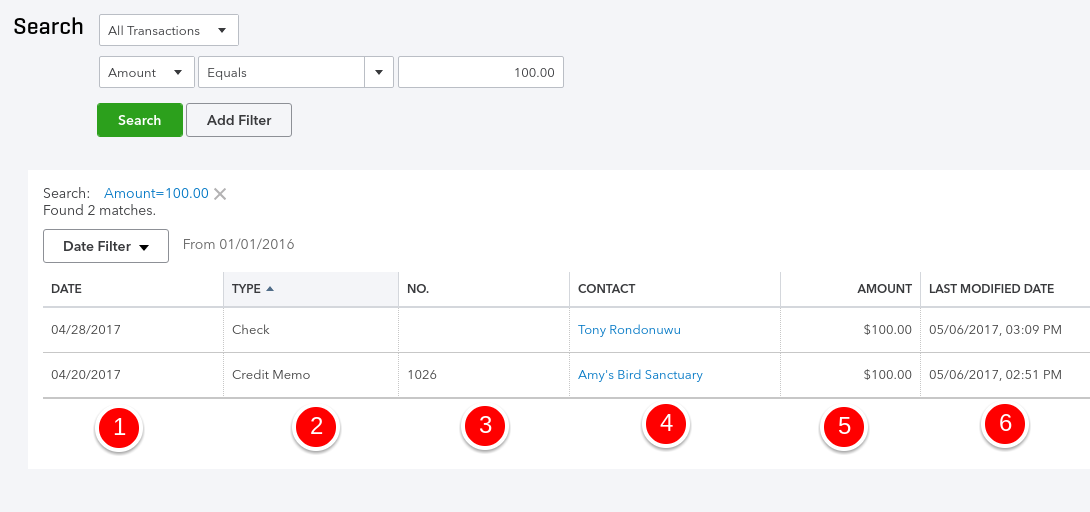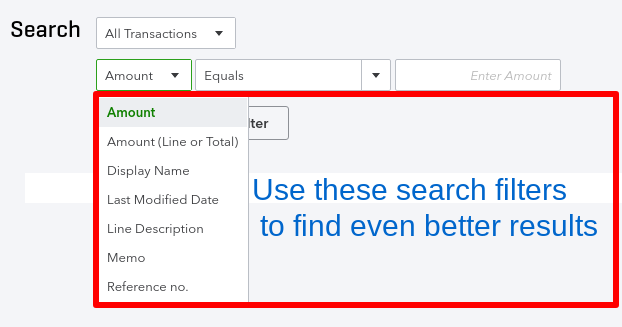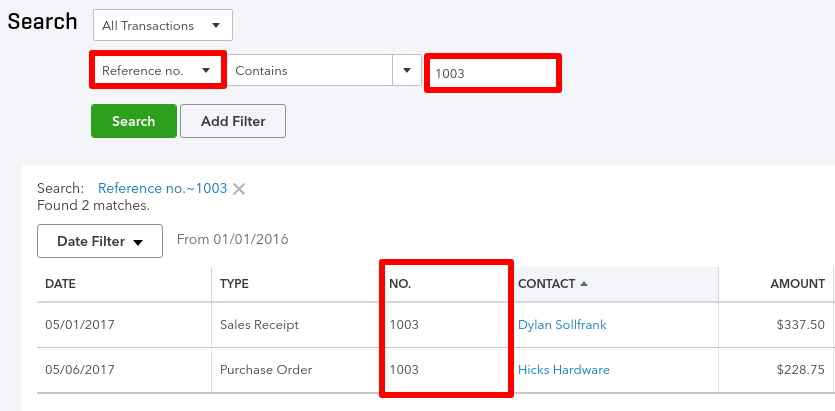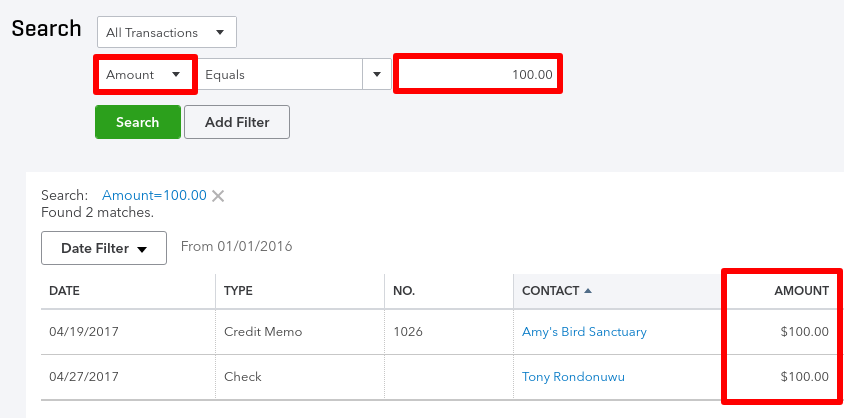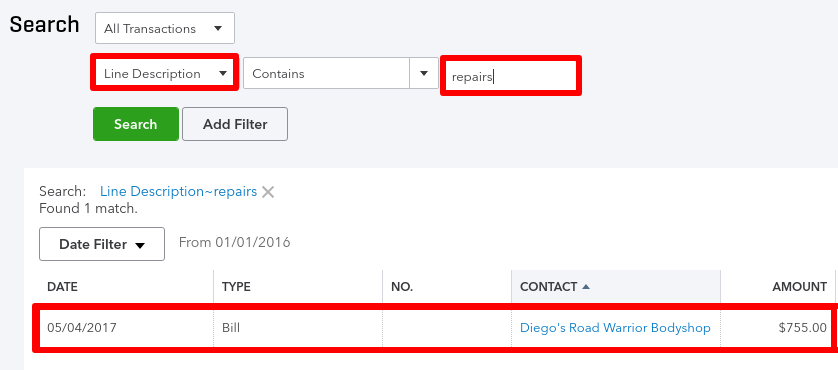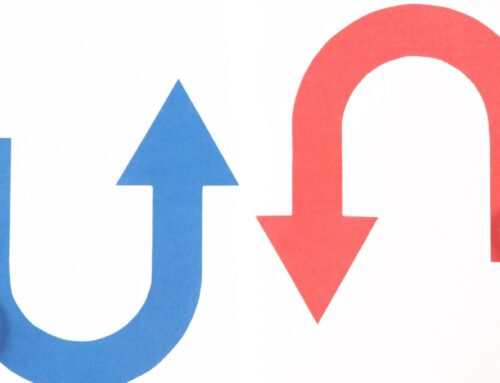You’re busy, on-the-go, and you need answers fast. One day, you find yourself looking for an invoice. You know its entered in QuickBooks, but you don’t know where it is and who it’s for. Meanwhile, an important customer is on their way to meet you in fifteen minutes. “How do I find a missing invoice when I’m so pressed for time?” you ask yourself. Chances are, you’re new to QuickBooks Online, and all you want to do is find your missing invoice. Fear not. I’ll show you how to find transactions in QuickBooks Online so you can find what you need when you need it.
Begin by opening the search icon
- At the upper right corner click the magnifying glass.
- Next, click the “Advanced Search” hyperlink (Expert tip – Advanced Search works much better than the regular search).
Define what are you searching for
There are two drop-down menus in the Advanced Search window.
The first drop-down menu is for the Transaction Type such as a bill, a check, a journal entry, an invoice, or a transfer.
If you’re not sure what type of transaction you are searching for, you can select All Transactions. Searching by All Transactions is the most useful search field because it covers most of the transaction in QuickBooks. However, if you know the exact transaction that you’re looking for, such as a bill or a check, you can select Bills or Checks instead of All Transactions.
Here is the first drop-down menu.
The second drop-down menu is an additional filter you can use to make your search more specific.
The Transaction Type and the additional filter must both be entered to get proper search results.
How to do a transaction search
Imagine you are looking for a check but you don’t know any details about the check except that it’s for $100.
Begin your search by entering the Transaction Type, followed by the search filter.
- Select Checks in the Transaction Type drop-down menu since you already know the transaction is a check.
- Select Amount, since the only thing you know about the check is that its for $100.
- Enter $100.00
- Select search and view your results.
How to read your search results
After selecting search, you should see a list of results. Below is a guide you can use to interpret your search results.
- DATE: This is the date of the transaction.
- TYPE: Is the transaction an invoice, a bill, journal entry, check, expense, etc.?
- NO: The transactions reference number (for example: a check number).
- CONTACT: The Client, Customer, Vendor, or Employee.
- AMOUNT: The specific monetary amount.
- LAST MODIFIED DATE: Last date any modifications were made to the posted transactions. You can search the Audit Trail.
Using Search Filters for even better results
Search filters are used to narrow down your search results. Below is a list of common search filters you can use to refine your search.
How to find by Display Name
This is the name of a customer, a vendor, or an employee. Use this search when you already know the name of your vendor or client.
How to find by Amount
This search is when you are looking for all transactions with a specific amount. This is, by far, the most common search criteria used in QuickBooks.
Use this search when you only know the dollar amount of the transaction.
How to find by Description
This search picks up what is written in the line or memo field of a transaction.
Use this search when searching for transactions with the same description.
How to find by Reference Number
This search allows you to locate transactions with a specific reference number, such as a check number, invoice number, or sales receipt number.
Use this search when you have a reference number available, such as a check number.
These are just some of the ways you can find transactions in QuickBooks Online. You can now find that missing invoice you were looking for with time to spare. And, when you finally have time off from your busy schedule, take a moment to explore the search window. You will probably find many more different ways you can locate missing, or even duplicate, transactions. Check it out for yourself and see how easy it is.
[bctt tweet=”These are just some of the ways you can find transactions in QuickBooks Online” username=”5MinBookkeeping”]
